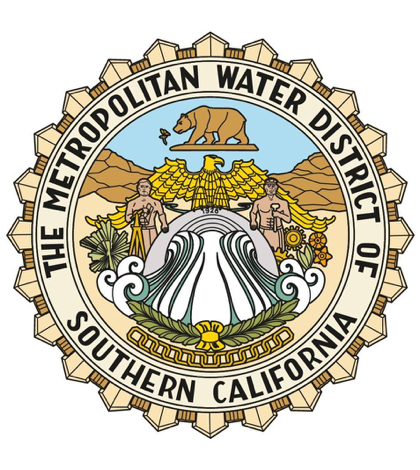Metropolitan Water District of Southern California (MWD) along with the U.S. Bureau of Reclamation, U.S. Environmental Protection Agency (EPA), Southern Nevada Water Authority (SNWA) and Central Arizona Project (CAP) have selected 10 projects – seven of which are in California – and will help fund them as the most recent round of recipients of the Innovative Conservation Program (ICP) grants. ICP was founded by MWD and Reclamation in 2001 and has awarded $1.85 million for 57 grants during its first five two-year funding cycles.
The ICP program seeks to advance water-saving efforts by finding new and innovative methods for using water more efficiently. In addition to its funding partners, ICP includes Southern California Gas Co. and the non-profit conservation group, Western Resource Advocates. This ICP cycle focused on water-saving devices, technologies and strategy proposals that address the water/energy nexus.
Although California’s five-year drought has ended the Colorado River Basin’s drought has stretched into its 17th year. Citing the need for continued water conservation Ted Cooke, general manager of the Central Arizona Project, said, “There’s no better time than the present for innovation in conservation. As the Colorado River continues to suffer, and the Southwest lives under constant threat of shortage—we hope these grants serve as the impetus for change in our communities, as well as the launching pad for inventive solutions.”
The seven California projects selected for ICP funding in the most recent grant cycle include:
Frontier Energy, Inc (Oakland, CA)—Dipper wells replacement study. This will include the evaluation of water and energy savings potential of replacing dipper wells in restaurants and ice cream shops with more efficient technologies. Analysis will normalize water and energy use to metrics including site square footage, operating hours, number of seats, and any other appropriate metrics.
Frontier Energy, Inc (Oakland, CA)—Pre-rinse operations in commercial kitchens. This evaluation will analyze the water and energy use of pre-rinse operations in commercial kitchens including the use of scrappers, troughs, hand scrapping, disposers, pulpers, hose use or a combination of several practices. Monitoring will include analysis of staff operations to identify opportunities to reduce waste.
Cal Poly Pomona (Pomona, CA)—Solar decentralized graywater treatment unit. Funds will be used for the development of a low-cost, robust, decentralized, and solar-driven graywater treatment unit for nonpotable use for single-family residential dwellings.
Cal State Long Beach (Long Beach, CA)—Effective water reuse in cooling tower systems. This project features the evaluation of cooling tower wastewater treatment by ion exchange. Cost analysis on water savings from cooled water reuse will also be performed.
Watershed Conservation Authority (Azusa, CA)—Cocoon technology for California native trees and shrubs. Funding will allow the evaluation of the water savings achieved using the Cocoon technology in the establishment of southern California native trees and shrubs.
Cal State Fullerton (Fullerton, CA)—Measuring sap flow in avocado to reduce irrigation. This project will evaluate water savings of using sap flow measurement to establish the actual water needs of 4-year-old Hass avocado trees.
Biolargo (Westminster, CA)—Wastewater re-use in food industry. This project encompasses the evaluation of disinfection and decontamination capabilities of advanced oxidation reactor for water re-use in poultry processing plants.
Three other projects outside of California will also be recipients of ICP funding this year including: the University of Arizona’s (Tucson, AZ) landscape drip schedule app for the Southwest; APANA’s (Bellingham, WA) data driven cooling tower optimization study; and, EyeOn18’s (Beaverton, OR) drone imagery utilization on golf courses.
“As water managers, we are always interested in new strategies and tactics that can be utilized to increase water efficiency,” said John Entsminger, SNWA general manager. “With this program’s platform, we work directly with the innovators to help foster new water-saving technologies or research aimed at reducing water demands and increasing efficiency of Colorado River water use.”
Past inventive approaches funded by ICP’s partners in previous years have included plant sensor-based irrigation in vineyards for both wine quality and yield, an X-ray film-processing unit that recycles more than 90 percent of the 1 million gallons of water a typical machine uses annually in a hospital setting and the development of a pressurized water broom that replaces the need to use a hose to clean patios, driveways and other large surface areas, saving up to 250,000 gallons of water over its lifetime.
“Water conservation is the largest new supply available to bring water security to the Colorado River Basin. This program looks to accelerate cutting-edge techniques that produce water savings for the benefit of all,” said Bart Miller, Western Resource Advocates’ Healthy Rivers Program director.
Speaking of behalf of all the partners and sponsors of this year’s ICP funding cycle, Metropolitan General Manager Jeffrey Kightlinger said, “You don’t need a crystal ball to predict that our future depends on using water wisely and efficiently today. This program fosters fresh and innovative approaches and inspires creative ideas and strategies to reduce water use.”
 California Water News Daily Your Source For Water News in California
California Water News Daily Your Source For Water News in California


